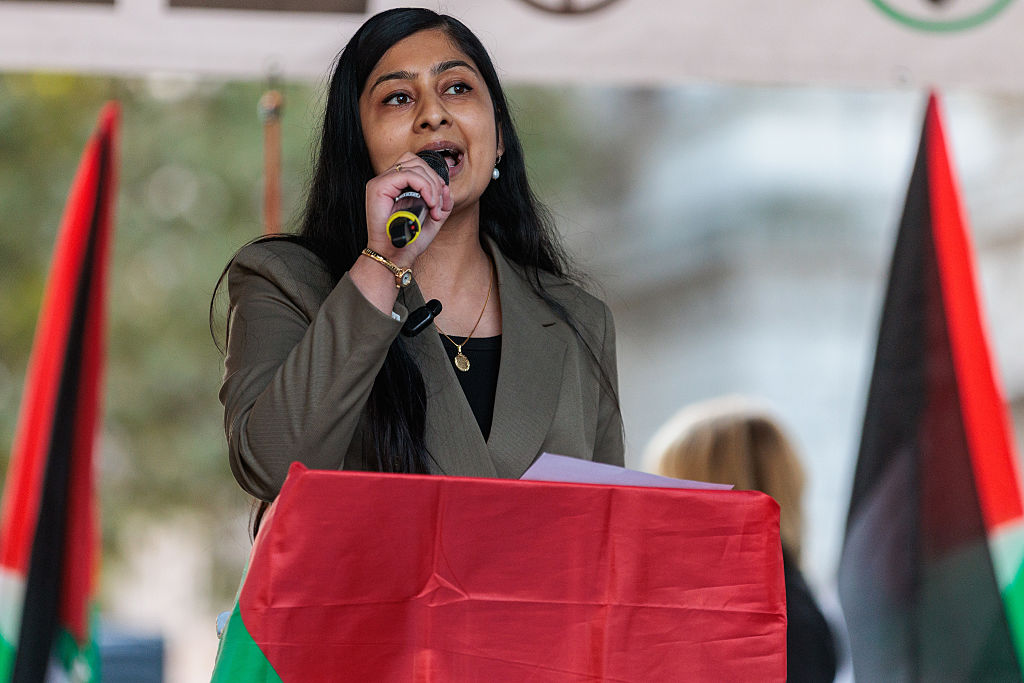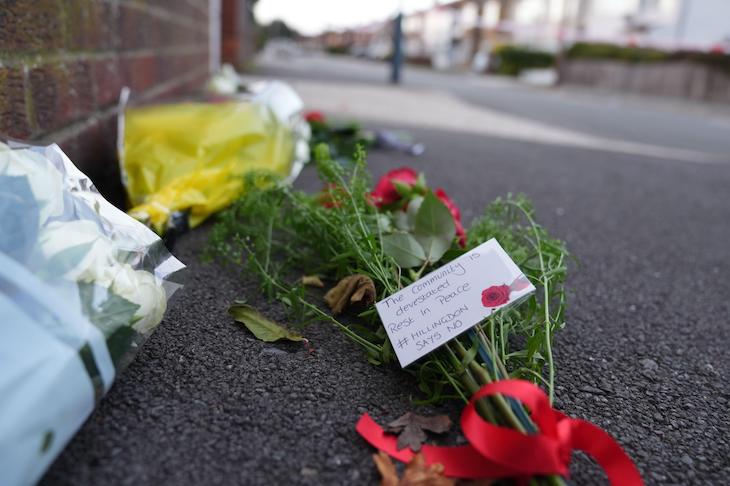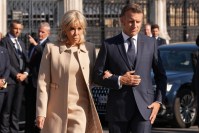Zarah Sultana loves to pose as a champion of the working class, seeing the world through the lens of class struggle. Even, it seems, the war in Ukraine. In her latest interview, she calls Nato ‘an imperialist war machine’ and advocates for putting all our effort into ending the war, rather than making weapons, thereby giving money to those who profit from conflict. ‘Putin is a dictator, a gangster,’ she says, but ‘Zelensky isn’t a friend of the working class either’. She met Ukrainians and Russians in Paris, she adds, who explained this to her.
Sultana embodies the kind of British leftist who would do anything for the world’s working class except listen to them
I’d like to add my own voice to this debate. I think I’d qualify, in her book, as working class. I’m from a family that lived on what is, by British standards, the breadline. My mother spends 12-hour night shifts at a paper factory that could be bombed by Russia any day, for a salary that works out at about £4,000 a year. Our upbringing is typical of those in our village. I have to inform Sultana that her class-war rhetoric would strike working-class Ukrainians as an egregious, pompous luxury belief – marinated in the fashionable politics of people who jet off to Paris to compare notes on the working class.
Sultana embodies the kind of British leftist who would do anything for the world’s working class except listen to them. From the offset, she has jumped the wrong way. Russia’s appetite for its former colony – in the name of recreating the ‘Rusky Mir’ – is a textbook example of imperialism. And yet, just before the full-scale war, she signed a statement urging Nato to halt its ‘eastward expansion’ and ‘address Russia’s security concerns’. Now, four years later, she is still echoing Russia’s talking points. Sultana talks as if Zelensky, Starmer and Donald Trump haven’t spent every day trying to find a way to confront neo-imperialist occupation.
And yes, Britain could ‘stop the war’ by doing what she wants: cutting off weapons for Ukraine and abandoning it with no way to defend itself. But it wasn’t Zelesnky’s choice to start this war, and he has no option but to fight it, while begging the world for missiles and jets for Ukrainians to survive. If the arms didn’t come, the fighting would stop – and the subjugation would start. A subjugation that Ukraine experienced during the Nazi occupation and then under communism. One that the butchered people of Bucha experienced in 2022. Is this the remedy that Ms Sultana prescribes? That we stop fighting, take our beating and call it ‘peace’? Is this her definition of working-class empowerment? When a country is faced with subjection, it doesn’t matter if you’re working or middle class: the Russian bullet goes through the flesh just as easily.
The truth is that when working-class Russian soldiers crossed the border to occupy Ukraine, working-class Ukrainians queued at the enlistment offices to defend their homes. Today, even more working-class Russians, lured by fat military contracts, are killing Ukrainians for cash, at the frontline and in the rear, where Russian pilots rain missiles on working-class apartment blocks. Just last week, a Russian drone hit a Kyiv nursery full of working-class toddlers.
There is no doubt that arms manufacturers profit from war, that’s the reality of the modern world: they can’t produce weapons for free, and Ukrainians can’t defend themselves with moral platitudes. Defence needs arms, arms need a business model. Without western weapons, the mass graves in Bucha and Izium would stretch across the entire country. The working class of Ukraine do not wish to see their families slaughtered. If Sultana doesn’t want a ‘forever war’ and truly believes in ‘wages, not weapons; welfare, not warfare’, as she writes, she should direct that message to Putin and demand he withdraw his troops.
Ukrainians have been incredibly lucky to have Britain by their side as a true ally in the darkest days. London has committed more than £20 billion to Ukraine since the full-scale war began, including £13 billion in military aid. According to an Ipsos poll, most Britons, 59 per cent, continue to support this today, and more than half believe that economic sanctions on Russia are necessary, even if it means higher energy and food prices. This is not an easy toll for a nation living so far from the actual conflict, and every Ukrainian I know, including myself, will forever be grateful for such a generous contribution. Without British artillery shells, drones and missiles, there would be many more dead Ukrainians, and no more independent and free Ukraine.
The strange thing is that, having lived in Ukraine for most of my life, Sultana’s class-war politics just don’t apply. The cleavage that defined politics in my lifetime was between those who looked to Moscow or those who saw Ukraine as part of democratic Europe. The market economy Sultana criticises has been Ukraine’s lifeline: our post-Soviet battle has been rooting out corruption and replacing oligarchy with a system of civil liberties, rights and the rule of law. After a slow start, Ukraine was making good progress on this front, which Putin could not tolerate as we were providing a model of what Russia might be if it did the same. A model that maximises opportunities for the poor.
Sultana may deplore the ‘capitalism’ of the United Kingdom, but as I am a beneficiary of that system – since arriving at this magazine three years ago and given complete freedom to write – I can understand why this is what Ukrainians want for themselves. Stability. The rule of law. Democracy. My sense is that the British people instinctively understand this, which explains their incredible solidarity with Ukraine – seen not just with their military help, but in the Ukrainian flags which still fly around the country. In this way, the workers of the world do unite: against tyranny, imperialist repression and the ideology that hard-left people like Sultana flirt with. An ideology that only the elite can afford.
I hope Sultana keeps enjoying lecturing about peace under the safe skies protected by the Nato alliance she despises. If she truly knows how to make the Russian guns fall silent, if she knows the right way to put all that necessary effort to achieve a lasting peace, she’s more than welcome to travel with me to Kyiv and explain her groundbreaking plan to the Ukrainian nation and President Zelensky. There are plenty of working-class Ukrainians who would be only too pleased to explain their hopes for their own country, their gratitude for Britain’s support – and their hard-won knowledge that freedom isn’t free, it needs to be fought for and defended.








Comments